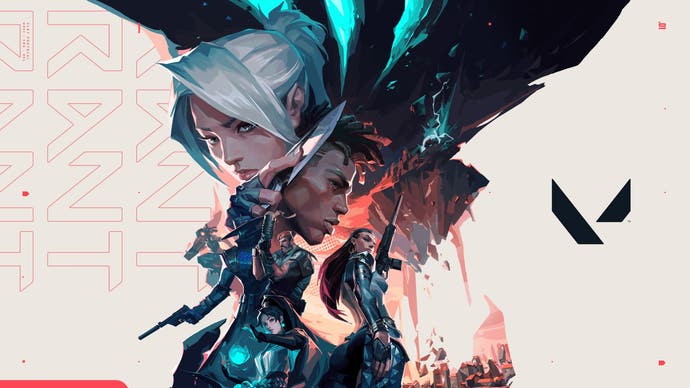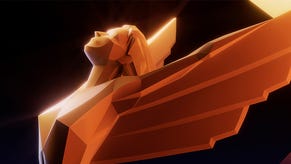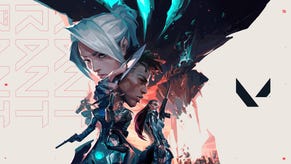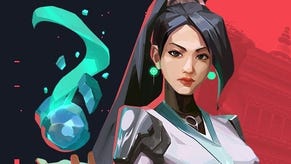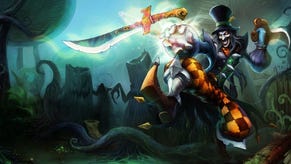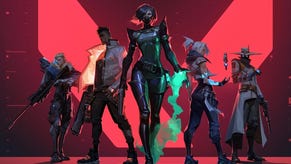Valorant is set for inevitable success, but there's still room to improve
Jetting off.
Expect it to be huge. Valorant, Riot Games' tactical, abilities- and weapons-based shooter, is finally out in the wild, and it's arrived off the back of a frankly massive "closed" beta. Some of those numbers, like the outrageous watch times and concurrent viewers on Twitch, are artificially inflated - namely by Riot's "drops" system of handing out beta keys to random viewers of streams - but the player numbers aren't. There's good reason for it.
For starters, I'm not sure I've played a game that feels as ground-up optimised for its own purpose as Valorant. This is a game that makes its case through competency. It has the best servers (are we numb to the words "128-tick" yet?), the most optimal art style, an aggressive, proprietary anti-cheat system and a team behind it that feels frankly obsessed with proving its pedigree. It's a statement, Riot Games standing up and saying "this is what we can do".
The good news for us is, for the most part, that means Valorant is an exceptionally well-made game. It's gunplay might not outright surpass the precision of Counter Strike, but it certainly matches it, and while it might not beat Call of Duty or Halo for the pure satisfaction of firing a weapon, in this case that's sort of besides the point. There are settings for reticule sizes, shapes and colours. There are exact damage stats displayed on the weapon-choice screen that detail head, body, and limb damage - including at different ranges - and bullet-point accurate rates of fire for every firing mode a gun has. Much like Counter Strike - and Valorant really is very close to Counter Strike - precision rules above all.
That emphasis comes through on just about every aspect of the game. The use of sound is excellent, and mastering that becomes an essential part of any successful player's game. I found weapons a tad loud in the beta, but otherwise it's perfectly pitched. You'll need to juggle walking and running at the right moments, which often leads to brilliantly teeth-clenched moments as you inch towards a doorway or a corner, trading silence for being visually exposed. At higher levels maybe you'll use the sound of your own footsteps for bait. Abilities are what sets it apart, but most abilities are "support" focused in one way or another: they're about vision, terrain, zoning, initiating, and control, as opposed to raw damage.
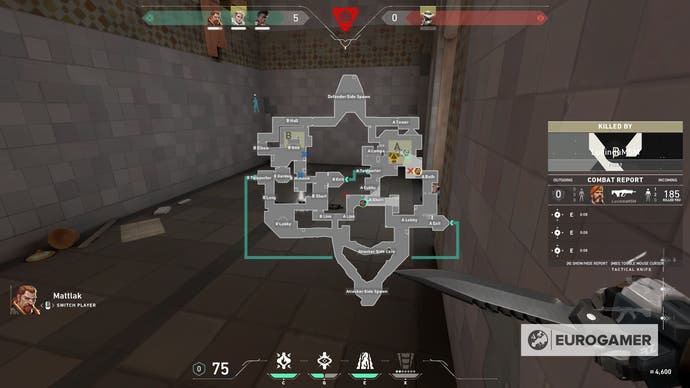
There's some room for improvement with them. While a lot of abilities can be used quite creatively - Sage can create a solid, temporary wall, but also stand on top of it as she creates it, raising her and any others nearby up to gain a unique sightline - it feels like there's a fair bit of repetition. There are one or two too many large, block-colour orbs of smoke, and walls of damage-dealing fire or poison, given such a small roster of agents. I'd like to see Riot get a bit more creative with these as new agents are released - sound and movement speed feel like they could do with some ability attention, for instance. That said, they still complement the gunplay brilliantly, and I've seen the occasional bit of cross-character teamwork at my lowly level of play already. At competitive levels there's huge potential.
Valorant's biggest obstacle, though, is one that we've talked about before. It needs to get much, much better at managing the behaviour of its own players. Toxicity hasn't quite reached the heights of that in League of Legends, I'd say, but it's significantly worse than competitors like Apex Legends or Rainbow Six Siege, and that's only heightened by the emphasis on voice chat, something that inherently alienates certain sections of the community and exposes them, often, to instant abuse if they decide to pipe up. It's also emphasised by the game's own tension. As thrilling as a clutch win may be, losing a single round can be miserable if you're on the receiving end of some bile. For a studio that has such a long history of waging the war on in-game abuse I've found the lack of robust, proactive measures in the preview, the beta, and now the early days of the full game extremely disappointing, and frankly naive.
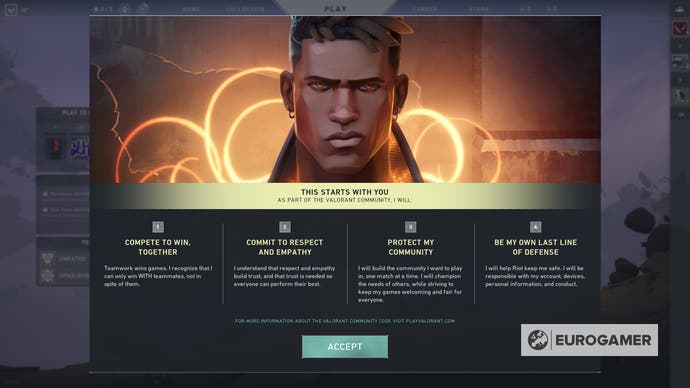
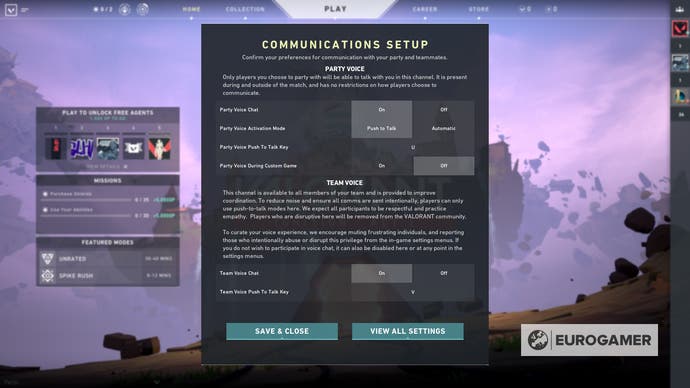
There are other things to look out for, over the coming weeks and months after launch. Valorant lacks character. The world - the sky, the surroundings, the general sense of place - feels overly still and empty, like you're running around a city after everyone's gone to the rapture. Characters themselves are a little under characterised - the quips of Londoner Phoenix were the only memorable ones for me, of the ten in the game, and at no point does the game get close to the vivaciousness of Overwatch. The "Vanguard" anti-cheat system is ruffling some feathers because of just how aggressive it is: it's a separate program on your PC, and if it's not running when the game starts you're asked to reboot your entire computer to try again. Monetisation, I'm sure, will evolve over time too. At the time of writing there are no loot boxes, for those worried about modern gaming's bogeyman, but despite some reports of promises not to include them, when we spoke lead producer Anna Donlon told me "not right now" - although emphasised that anything affecting gameplay would always remain sacrosanct.
None of those worries, however, will be enough to really slow Valorant down. This is a game with everything pulling in the same direction, to quite a remarkable degree, and with the maker of the biggest game in the world behind it. It's an enormously satisfying game to feel yourself getting better at and to win. In most areas, right down to the breadth of in-game training options or depth of menu settings, it is enormously conscious of what you the player might want. It is also, most importantly, just very good fun - it just needs to remind some players of that.
